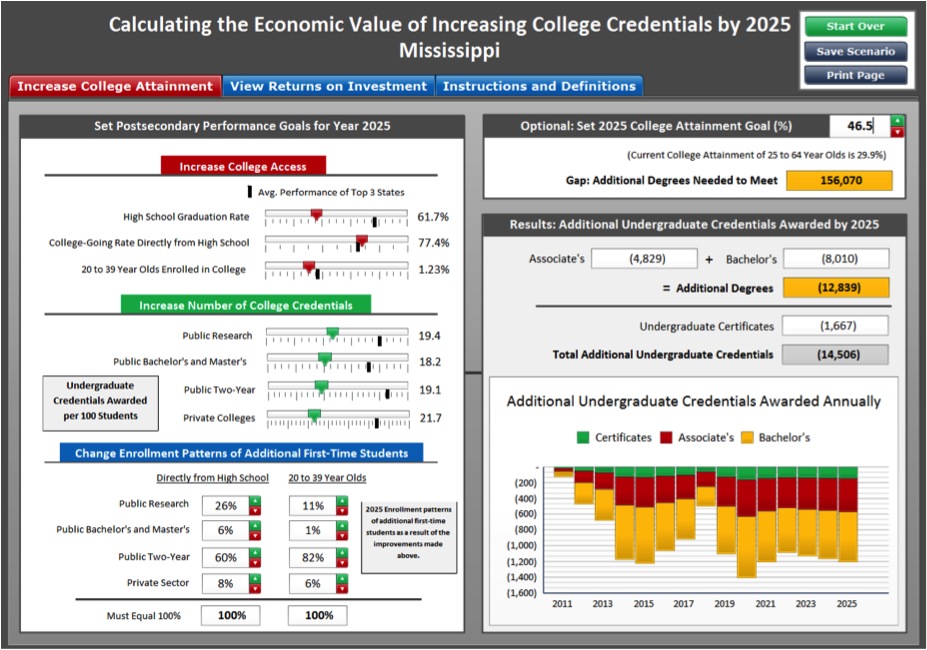Mississippi’s Graduation Rate Task Force Goals for Increasing Degree Attainment
May 2nd, 2012
In 2009 Mississippi’s Graduation Rate Task Force developed long-term goals for increasing the number of Mississippi adults with a postsecondary degree. The Task Force outlined that they wanted to reach the national rate for degree attainment by 2025 which means raising the portion of Mississippi’s residents with a post-secondary degree to 46.5%. Currently, 29.9% of working-age adults hold a post-secondary degree.
To reach the Task Force goal, Mississippi needs to connect close to 150,000 additional residents with a 2 or 4 –year degree beyond the current rate of degree attainment, equal to an additional 950 and 1,000 graduates each year.
What different levers can contribute to increasing the rate at which Mississippi’s students attain degrees?
A new tool from the Center on Law and Social Policy (CLASP) explores what factors can raise the portion of residents earning a credential. By setting a “2025 College Attainment Goal” at 46.5%, individuals can move “bars” for Mississippi’s high school graduation rate, the college-going rate and portion of adults enrolling in college to see how increasing each one contributes to more degrees earned.
Meeting the Graduation Task Force goal will also mean increasing the number of students that persist to graduation. Individuals can also explore how increasing the rate at which students earn credentials at two and four-year colleges will also be necessary to advance the state to its goal.
The tool also demonstrates the return on investment that comes from increasing college graduates including: increased per capita earnings, increased state revenue and decreased state spending.
While the data are estimates, CLASP’s tool provides a starting point for conversation about advancements still needed in Mississippi’s post-secondary education system. Ensuring the success of adult students will be a critical part of attaining the 2025 goal. Considering non-traditional student needs in program design, support services and curriculum development is critical for raising the number of prepared adults in Mississippi’s workforce and raising the state’s competitiveness and prosperity in the years ahead.
Author: Sarah Welker, Policy Analyst






